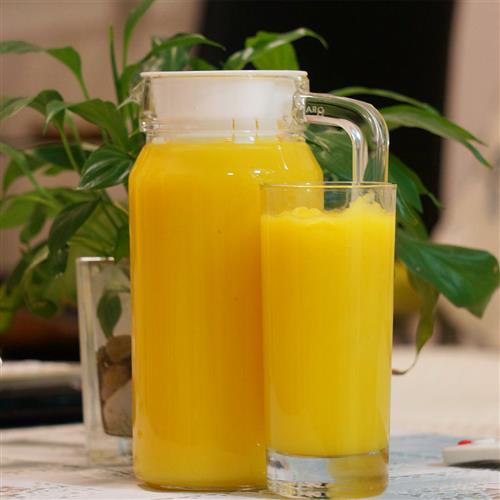Juice may be the closest thing to pure fruit, but sometimes, the juice differs from ours by more than a hundred thousand miles. For fruit juice, there are some truths that you must know.
1. Juice contains much less nutrients than fruit. When the fruit is pressed into juice, the flesh and film are removed. In the process, vitamin C is also greatly reduced, and vitamin C is something you must ingest. If this fruit itself contains little vitamins, such as apples, then in the process, vitamins are almost completely removed.

2. Fruits with more nutrients are usually rich in nutrients. Such as citrus fruits. However, sometimes, some nutrients, such as vitamin C, are added manually to the juice. Please look carefully at the label to find out what is inside. It may be that some brands of apple juice or grape juice contain the vitamin C you need, but there may not be any other brands.
3. The size of the container can affect the vitamin content in the juice. How can this be? Note that the exposure of vitamin C to oxygen will break down, and the juice in smaller containers will be exposed to more air during the packaging period and after packaging.
4. It boasts that "100% fruit juice" is not necessary. There are always some things in the juice that are in seasoning ingredients. They are usually not nutritious, and in fact they are not very tasty.
5. You cannot find too many fruits in the so-called "juice foods" or "juice drinks." Most of the inside is water and high levels of corn syrup. However, there are exceptions, some cranberry fruit juice is rich in vitamin C, they are quite nutritious.
6. Once opened, the juice begins to lose nutrients, so don't store it too much in the refrigerator. The nutrition of a sterile juice made from citrus, grapefruit, pineapple, etc. can be preserved for 7-10 days. Other low-acid juices, such as apples and grapes, can be stored for a week after opening. If you buy unpasteurized fruit juice, even if you do not open it, you must eat it within a week.
7. Unpasteurized juice may not be safe. Recently, the Food and Drug Administration requested that warning labels be placed on these juices. These juices are not dangerous for healthy adults, but it is best for children, the elderly, and other immunocompromised people not to drink such juices, in which some harmful bacteria are not killed. Fruit juices sold in supermarkets are almost always sterilized at high temperatures - certainly not the new squeezing. In the farmers' market, small producers may not be. So, you should pay attention and ask more.
8. If you juice at home, first wash the fruit in cold running water to remove bacteria on the surface. Wash each time with a fruit lotion and hot water before each squeeze.
9. If you want the most nutritious fruit juice, please insist on buying unblended fruit juices such as citrus and glaze. Or try other citrus juices, which are usually rich in vitamins A, C, E, or calcium.
10. Do not rely too much on fruit juices. If you read and choose widely, juice may help your diet. However, eating fruit is actually very simple, and it is indeed much stronger than eating fruit juice.
Due to people's concerns about health, plant products from natural sources have also received widespread attention. Natural plant tea cuts are products made by direct shearing, crushing, and other physical processing of pure plants. The product retains all the original characteristics of the plant, and the properties of the product are better packaged and can be easily transported to different places.
At the same time, the active ingredients of the product are not damaged. It is widely used in functional tea and other fields. Common products are: astragalus cut, burdock cut,etc.
Organic Plant Slice,Plant Cut,Plant Tbc,Angelica Root Slice
Amazy Organic Biotech Co.,Ltd , https://www.amazyorganic.com